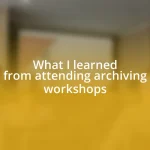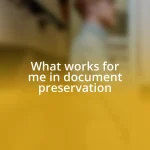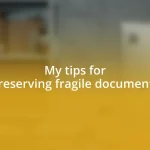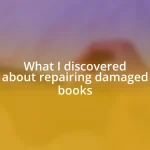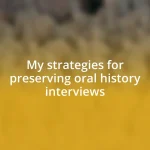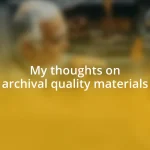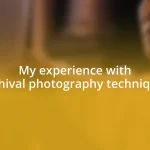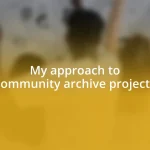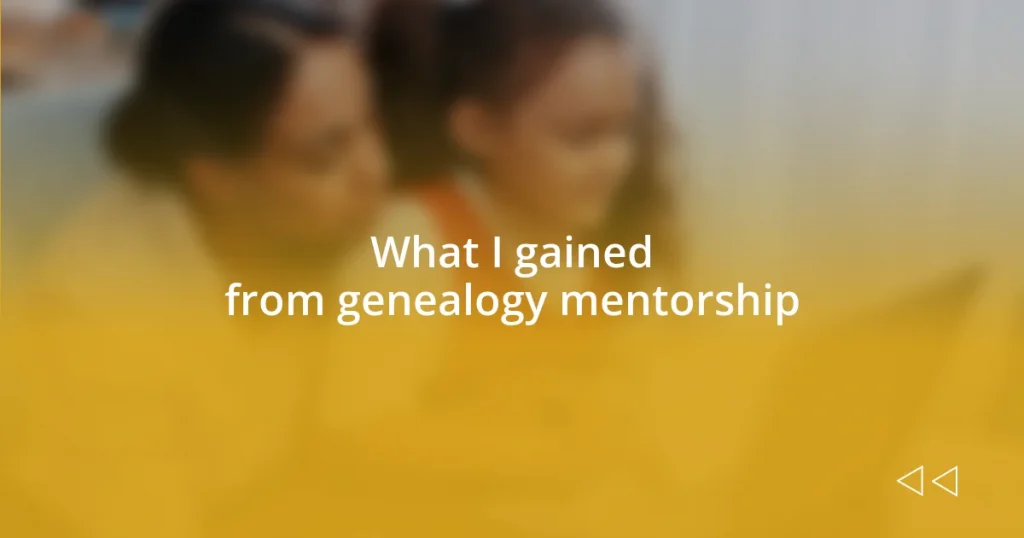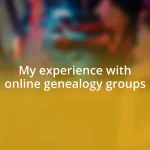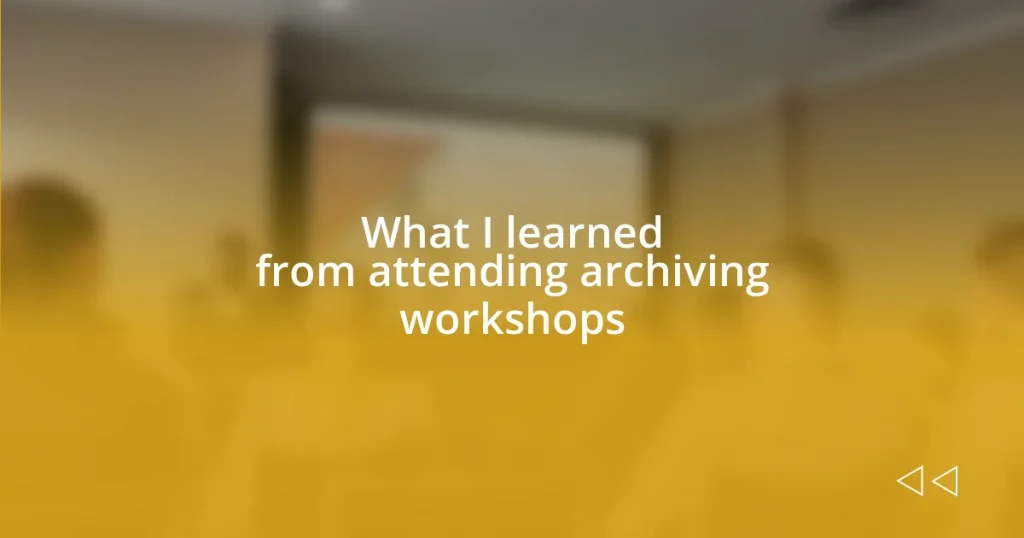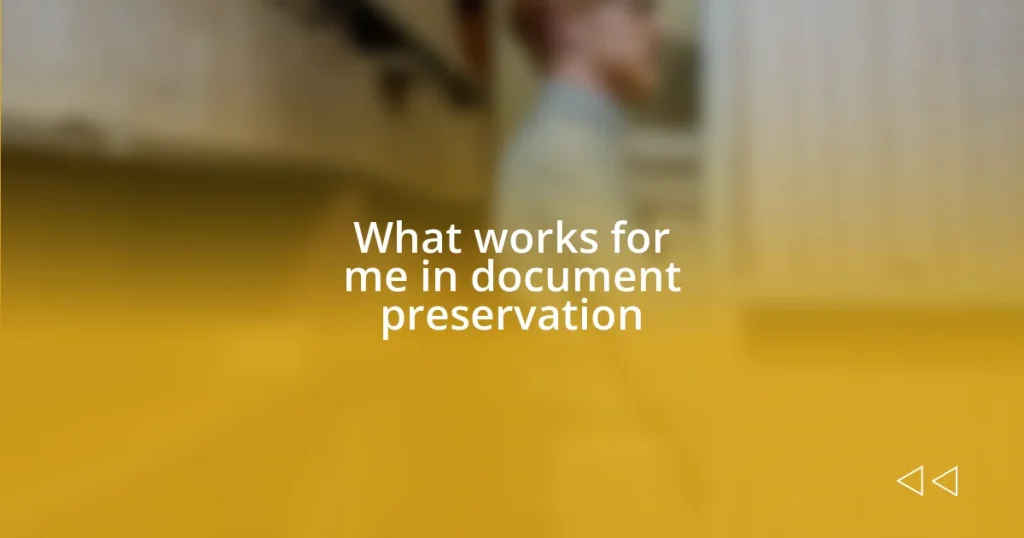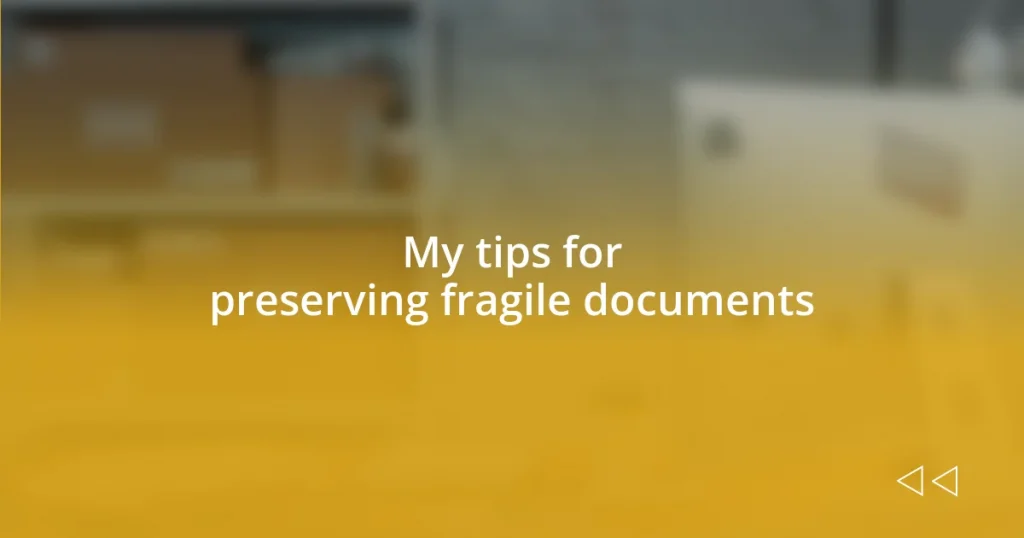Key takeaways:
- Genealogy mentorship provides personalized guidance and emotional support, enhancing the research experience through shared discoveries and connections.
- Building a strong mentor-mentee relationship is founded on trust, mutual respect, and consistent communication, fostering growth and learning.
- Expanding one’s genealogy network through mentorship and community engagement unlocks new knowledge, resources, and collaborative opportunities for research.

Understanding genealogy mentorship benefits
One of the greatest benefits of genealogy mentorship is the personalized guidance it offers. I remember when I was trying to untangle a particularly tricky branch of my family tree—my mentor provided insights that significantly altered my approach. They showed me how to leverage archives I’d never considered, and it sparked a sense of excitement that is hard to replicate.
Beyond practical support, mentorship can foster deep emotional connections. Sharing my discoveries with someone who truly understands the significance of each ancestor brought the process to life. Have you ever felt that rush of pride when you uncover a family secret? It’s a mentor’s encouragement that helps you cherish those moments even more.
Furthermore, mentorship opens doors to a wealth of resources and networks that would otherwise remain inaccessible. I can’t emphasize enough how connecting with my mentor led me to invaluable online communities. Each introduction not only expanded my knowledge but also reminded me that I wasn’t alone in this journey—there’s a whole world of fellow genealogists willing to share their experiences and insights.

Building a strong mentor relationship
Building a strong mentor relationship is fundamentally about trust and communication. From my experiences, I learned that being open about my struggles helped my mentor understand how to guide me best. I remember sharing my frustrations over a confusing set of records; it was during that vulnerable moment when my mentor suggested taking a step back and reassessing my strategy that I truly felt supported.
In my journey, I discovered that mutual respect is equally essential. My mentor treated my questions with sincerity, no matter how trivial they seemed, helping me realize that every inquiry is a stepping stone to deeper understanding. This created an environment where I felt empowered to explore genealogical questions without the fear of judgment—something I value greatly.
Lastly, consistency in interactions fosters growth. Regular check-ins allowed us to celebrate small victories together, which always encouraged me to persevere. It was like having a partner on a thrilling adventure, where each discovery reminded me of why I started this quest in the first place. How do you think consistent communication can enhance a mentoring relationship? In my experience, it lays a solid foundation for long-lasting connection and progress.
| Key Elements | Descriptions |
|---|---|
| Trust | Openness about struggles fosters better guidance. |
| Mutual Respect | Valuing each other’s questions creates a safe learning environment. |
| Consistency | Regular interactions promote growth and celebrate achievements. |

Essential skills gained from mentorship
Developing essential skills through mentorship can be transformative. One area I found particularly significant was the honing of research techniques. For instance, I once struggled with deciphering old handwriting in records. My mentor introduced me to various online paleography resources, teaching me to not only read but to appreciate the history behind the script. This skill not only enhanced my research but also deepened my connection to my ancestors.
Another crucial skill gained was the ability to critically analyze and verify sources. Early on, I had a tendency to accept information at face value. During one session, my mentor emphasized the importance of questioning the credibility of sources. This advice transformed my approach—now, I diligently cross-check information, which has led to more accurate family connections. Here’s a summary of the essential skills I gained:
- Research Techniques: Learning specific methods for effective genealogical research, including utilizing lesser-known resources.
- Critical Analysis: Developing an eye for scrutiny that allows for the verification of sources for accuracy and reliability.
- Networking and Collaboration: Enhancing the skill of connecting with other genealogists for collaborative research opportunities.
Reflecting on these skills reminds me how integral mentorship has been in my growth. Without that guidance, I’d still be navigating the complexities of genealogy on my own, potentially missing out on incredible discoveries and connections.

Practical tools for genealogy research
When diving into genealogy research, having the right tools at your fingertips is crucial. I vividly remember the thrill of discovering software like Legacy Family Tree, which not only organized my family tree but also uncovered hints from various databases. It was like having a virtual assistant who kept my information tidy and helped me uncover new connections effortlessly. Isn’t it amazing how the right tools can transform a daunting task into an exciting journey of discovery?
Equally important are online databases. I found platforms like Ancestry and FamilySearch incredibly helpful, particularly when I was stumped on a specific ancestor. Ancestry’s hints feature led me down fascinating rabbit holes that provided not just names but also captivating stories behind them. The experience of piecing together those stories ignited a passion I didn’t know I had for family history. Have you ever unearthed a surprising detail that changed how you viewed your family history? Those moments make the research all the more rewarding.
Lastly, the power of good old-fashioned local libraries and archives cannot be underestimated. During one of my research trips, I stumbled upon a dusty old book in my local library that contained firsthand accounts of my ancestors. It felt like I was peering into a window of the past, and I realized that sometimes the most profound connections come from unexpected places. I often wonder: what hidden treasures lie in your community’s resources waiting to be discovered? Every visit could reveal something monumental.

Overcoming challenges in genealogy
Overcoming challenges in genealogy often uncovers hidden strengths within us. I recall feeling overwhelmed when faced with conflicting information about my great-grandmother’s origins. I decided to dig deeper and challenge myself to explore multiple perspectives. This journey not only sharpened my research skills but also taught me patience in the face of uncertainty. It forced me to embrace the idea that family history is rarely linear and that twists and turns can lead to rich, unexpected narratives.
Another challenge I’ve frequently encountered is the emotional weight of uncovering difficult family secrets. I remember a moment when a relative’s past became painfully clear through my research. Instead of shying away, I chose to confront these truths head-on. Engaging with a mentor during this process provided me with necessary support and perspective. They reminded me that confronting our family’s complexities can lead to a deeper understanding and healing. How often do we shy away from stories that could enrich our understanding of who we are?
I’ve also learned the value of resilience when encountering brick walls in my research. There was a period when I hit a dead end with a family line that seemed doomed to remain a mystery. Rather than giving up, I reached out to diverse genealogy forums. Connecting with others who faced similar roadblocks opened my eyes to new ideas and strategies. It was a reminder that sometimes the path forward requires collaboration and a bit of creative thinking. Isn’t it interesting how challenges can become a bridge to both knowledge and community?

Applying lessons to personal research
I’ve found that applying the insights from genealogy mentorship to my personal research has made a world of difference. For instance, one lesson focused on developing a systematic approach to documenting sources. By creating a dedicated spreadsheet to track my findings, I not only enhanced my organization skills but also allowed myself to recognize patterns and discrepancies in the data. Have you ever noticed how easily chaos can spiral into clarity when you take time to structure your information?
Furthermore, I learned to ask more targeted questions during my research. One of my mentors encouraged me to dig deeper into the “whys” behind my ancestors’ life choices. This shift in thinking led me to uncover stories about migration and survival that ultimately transformed my view of my heritage. It makes me wonder: how often do we miss the nuances of our past by simply accepting the facts at face value?
An emotionally impactful lesson was the ability to share my journey with others. I decided to present my findings at a local history group meeting, and the feedback was overwhelming. People were eager to connect, share their stories, and even collaborate on research. It struck me how genealogy isn’t just a personal journey; it’s a shared experience that fosters community. Isn’t it fascinating how our individual pursuits can create threads that tie us all together?

Expanding your genealogy network
Building a genealogy network has been a game-changer for my research. I vividly remember attending a local genealogy workshop where I met fellow enthusiasts, each with their own stories to share. The connections I made that day led to a vibrant exchange of ideas, strategies, and even some unexpected leads on my own family history. Isn’t it incredible how a simple conversation can unlock so many possibilities?
Participating in online genealogy forums has also broadened my network immensely. I joined a group dedicated to DNA research and found myself immersed in discussions that challenged my understanding of ancestry. Sharing my experiences with others not only expanded my knowledge but also provided moral support during frustrating times. Have you ever felt the relief of knowing you’re not alone in your genealogical journey?
I’ve come to appreciate the unanticipated benefits of mentorship in this network-building process. Finding a mentor who genuinely cared about my journey felt like discovering a lifelong friend. Their recommendations for other genealogists to connect with opened doors I never knew existed. This network has fostered not just partnerships but also friendships, enriching my genealogical pursuits in ways I could never have imagined. Isn’t it wonderful how a shared passion can create lasting bonds?
